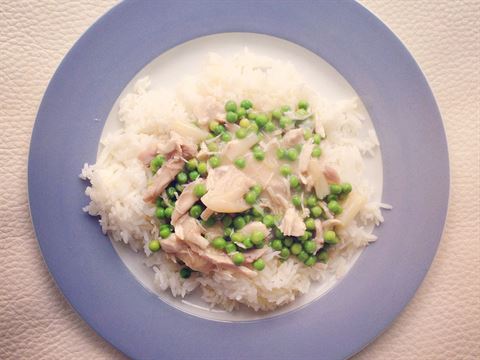Wellbeing • July 2014
Six tips for eating healthily on the road
Stress, fast food and lack of sleep – we can all feel a bit bloated and sluggish when we travel. But nutritional therapist Jeannette Hyde suggests following these simple principles to sustain your energy levels and make the most of your trip

Never skip breakfast
Even if you are leaving at dawn, take a portable, nutritious breakfast with you. Blend 250ml of kefir (pictured) – a fermented milk that populates the good bacteria in your gut – a handful of frozen berries and two dessert spoons of flaxseeds mixed with walnuts, Brazil nuts and almonds (try ready-milled mixes such as Linwoods). It’s full of protein, good oils and omega-3, and will boost your immune system for the flight.
Eat well before you fly
Make your last meal before flying a balanced and nutrient-dense one. Ideally this will be a quarter plate of protein (fish, grass-fed meat, eggs, pulses, nuts, seeds), a quarter plate of brown carbs (as these contain B-vitamins to help the body make energy and support stress), and half a plate piled with vegetables or salad, drizzled in a bit of olive oil to help the absorption of nutrients.
Keep light in flight
Drink lots of water and stick to herbal teas (it’s best to avoid caffeine and alcohol) so that you keep hydrated. I would also eat as lightly as possible whether I’m flying long- or short-haul – stick to the salad, fruit and protein part of your in-flight meal. This will lessen the effects of bloating and digestive discomfort. Green tea is a better alternative to black tea or coffee. It contains theanine, an amino acid that helps with relaxation and calming your mind – perfect if you need to do a bit of work on the plane.
Get onto the local time
Adapt to the eating pattern of your destination as soon as possible. Your digestive system sends a strong message to your internal clock, so eating meals at the local time may help your body adapt more quickly to the new time zone. Avoid eating white refined carbohydrates (so no sandwiches or pasta) during the day – it will lead to your blood sugars going up and down, and raise the risk of adrenal fatigue.
Beat the jet bloat
Eat local fermented foods, such as kefir, yogurts and cheeses. These populate your gut with friendly, local bacteria and help to boost your immune system. Fermented foods can also help protect against vacation constipation or loose stools. In the Far East, try to include fermented miso and tofu in your diet. A healthy gut has been linked to good mood and better sleep.

Sleep right
To sleep well, you need to produce the sleep hormone melatonin. Chicken and turkey contain tryptophan, which helps make melatonin, and if eaten with a side of white carbs, such as new potatoes, it helps the absorption. Magnesium also has the effect of relaxation on the body, so try to have some green peas or spinach on the side. Again, avoid drinking alcohol – but if you do have a glass of wine, always have it with food.
Jeannette has designed a Sleep Menu for the Corinthia Hotel London
This article has been tagged Food + Drink, Wellbeing
